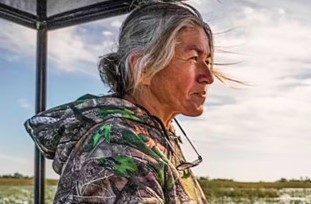
With the November election less than a month away, there is one amendment on Florida’s ballot that deserves some 11th hour attention. Amendment 2, the “Right to Hunt and Fish”, has prompted a lot of discussions between myself and many of my friends. Some are hunters or waterfolk who are concerned about our wildlife, others more so about our rights.
After hearing opinions from both the YES and NO camps, I have come to the personal conclusion that a YES vote is the right answer for both those concerned about Florida’s wildlife, and those fearful of losing what has felt like a right that we sometimes take for granted.
One of the more compelling conversations was with a person who I admire quite a lot. Betty Osceola is a conservationist and activist who is no stranger to protecting Florida's wildlife, and the rights of her constituents – Native Americans living in Florida.
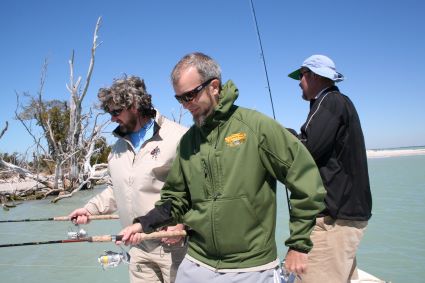
A basic web search of Mrs. Osceola is all that is needed to see that she has some chops. She understands the value of conserving wildlife and the lands they need to thrive. She strives to find balance between maintaining important cultural history and the reality of Florida’s continuous population growth, and the environmental demands that come with such growth. And she certainly understands the need to protect your rights – she knows better than most that once you lose them, it is very difficult to get them back.
It was a pleasure and honor to have a discussion with Mrs. Osceola about Florida’s Amendment 2, and her words helped steel my personal thoughts about how to vote on this item.
“I think my perspective is unique,” she told me early on in the conversation. “Being an indigenous person of a tribe which has experienced attacks on our right to hunt and fish, I know what it is like to have those things threatened.” A polite understatement from her, I’ll just add.
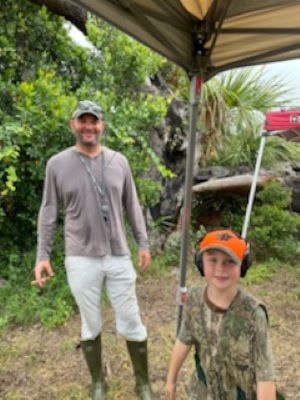
She had some very personal stories that have helped shape her perspectives on fishing and hunting rights. “One of the reasons my tribe (Mikasuki) fought to gain national recognition as a tribe was because game wardens would come into our villages and if people had deer or hog to eat, it would be taken away under the premise that we didn’t have the right to hunt or fish. Our Elders recognized that it was getting harder to live off the land, so they organized to get federal recognition.
“Today, even with some government protections that allow us to hunt and fish on our lands, we face threats. So we understand that these rights can always be taken away. If it becomes a part of the Florida Constitution, it becomes much harder to remove those rights for all citizens, including indigenous peoples.”
Her next sentence was very telling to me. “Currently people have the priviledge to get a hunting and fishing license, but a typical amendment can be changed.”
It’s subtle, but here Betty recognizes that the “right to hunt and fish” actually means we as individuals have the right to apply for a license. Even a constitutional amendment such as this one doesn’t bypass that and open the door to nilly-willy taking of fish and game by anyone, anywhere. More on that point in a bit, but first more from Betty.
Sympathetic to those who rely on fish and game to feed their family, Betty knows more than indigenous people would suffer should fishing and hunting rights be taken away. “Day in and day out, I see more people from low-income families fishing. They aren’t out there for recreation – they are trying to put food on the table.” She then rightfully brings it back to her personal situation. “Because of environmental stresses on local land, much of our local wildlife such as deer migrate out of the area. Our tribal members must travel farther to have food and for things like our traditional tribal events. And I believe our tribe still has the right to harvest deer, turtles or other game that we have traditionally used.”
As you might expect, tribal hunters are not wasteful with game. Most of the animal is used, almost none is wasted or thrown away. And a single deer can provide quite a bounty. “People who have never harvested a deer might think it provides a single meal. In actuality it can provide food for a month, plus a lot more,” she points out.
Of course, threats to hunting and fishing rights aren’t the only issue hunters and anglers face and Betty knows this. “As a kid, everything we ate came from the land. As an adult, that is not the case anymore. In the ‘Glades, you can’t eat fish more than once a week because of mercury levels. My goal is that all people who want to put local fish on their table, they can do so without the risk of medical issues from toxins and pollutants in the game.”
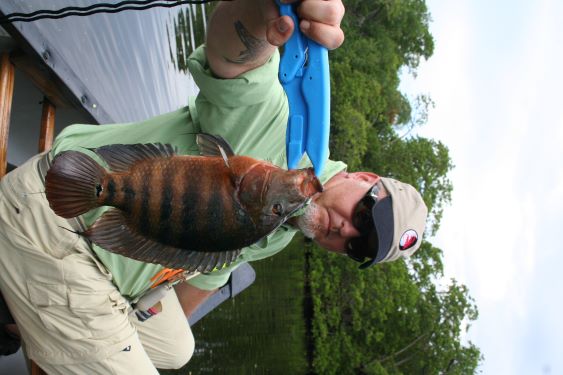
This is another powerful statement from Betty. I have believed for a long time that nobody has been more aggressive and successful about conserving land and waters in America than hunters and fishers. It seems like an oxymoron to those who don’t spend time hunting or fishing, but it has proven to be true. Without hunters and fishers, our natural ecosystems face a frightening future. We need people who understand the difference between a green golf course and a functional native ecosystem that supports all of the plants and animals living there. This alone is enough to steer me towards protecting hunting and fishing rights, but wait! There’s more!
The language of this amendment has raised alarms for some, and Betty is keenly aware of this. “Some people are getting hung up on the term ‘traditional methods’ and ‘preferred method’ for population control. If we can’t catch them, how will we weed out invasive fish such as snakeheads? If we can’t spear them, how can we combat lionfish populations?”
She expanded the point to terrestrial animals without even mentioning the python problem. “Relocating ‘nusiance’ wild animals is not always an effective method of population control. For example, Florida bears and panthers require a lot of land – bringing them all to the same ‘designated’ areas can cause real problems for the animals moved into the area as well as those already there. Plus many of them will just migrate back.”
One of the biggest sticking points for many voters is the idea that a “yes” to Amendment 2 would allow fish and game populations to be hunted/fished to extinction. I asked Betty what she thought about the possibility of gill nets returning to our inshore waters if the amendment is passed. “I have given this some thought. There might be some people out there who want to see regulations relaxed and try to use this amendment to achieve these goals. But the understanding is that ‘traditional methods’ does not allow any group to turn back the clock to times when the populations and rules were different.
“Most hunters and fishers understand the need for regulations and abide accordingly. An example right now is areas of high water – this week they closed WCA 3 [Water Conservation Area – roughly 950 square miles just north of the Everglades that usually allows some hunting and fishing] because the high water levels have stressed the deer populations as they seek higher ground. Nobody is complaining about it being closed because they know these animals need protection when they are weak like this. Hunters and fishers know this.”
She is correct, and there is precedent that backs this up. A web search on the topic brought me here within seconds: https://ballotpedia.org/History_of_right_to_hunt_and_fish_constitutional_amendments
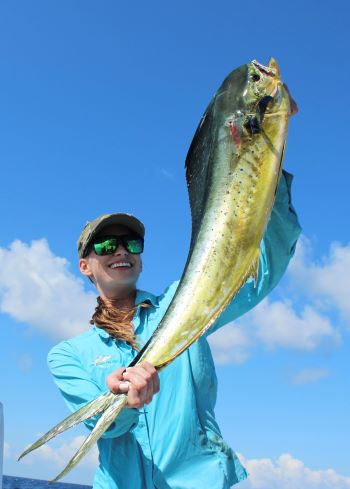 The summary of what I read here is this: A similar amendment in Tennessee gave some commercial paddlefish organizations the idea to sue for the right to harvest paddlefish because of language in the constitutional amendment spelling out the right to hunt and fish in the state, and harvest of paddlefish used to be allowed. The judge determined that such an amendment in no way supersedes the regulatory authority of their game commissions, and the case was shut down rather quickly and completely.
The summary of what I read here is this: A similar amendment in Tennessee gave some commercial paddlefish organizations the idea to sue for the right to harvest paddlefish because of language in the constitutional amendment spelling out the right to hunt and fish in the state, and harvest of paddlefish used to be allowed. The judge determined that such an amendment in no way supersedes the regulatory authority of their game commissions, and the case was shut down rather quickly and completely.
23 states now have the right to hunt and fish amended directly into their constitution. Vermont took the step back in 1777 and somehow they still have game to hunt and fish to catch. The states which have added them more recently have not had the floodgates open to harvest. In fact, as good as deer hunting can be in Florida, many of my hunting friends head off to states which already have the right voted into the constitution (Alabama, Kentucky, etc.) because the hunting and deer populations are better there.
Do I think someone might try to use the passing of Amendment 2 to bring gill nets back into our inshore waters? Sure. Maybe someone will propose an open bear hunt too. It has already happened with the nets, more than once. When it comes up again, I am confident that hunters and fishers – including Betty Osceola and her like-minded conservationist indigenous peoples – will sufficiently stand up to such threats like we always have and always will.
With the election on the very near horizon, it is time to complete your homework on all of the candidates and amendments and exercise your rights to vote. Hopefully this glimpse into the mind of Betty Osceola will prompt you to do a little more reading on the topic so you can make a fully informed decision. Don’t rely on my opinion nor anyone else’s – challenge claims from all sides by doing a little poking around so you can best represent your best understanding of the candidates and issues.
Management of wildlife and ecosystems is political (and economical), like it or not. That doesn’t mean we can’t improve our efforts to conserve – in fact we must. To me, keeping fishers and hunters in Florida’s wild is one way we can help make that happen.
